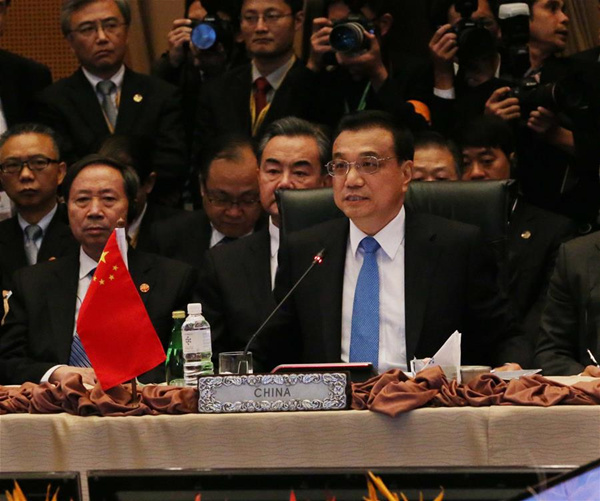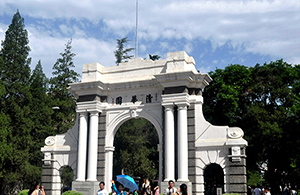Premier's proposal clarifies stand on South China Sea
(China Daily) Updated: 2015-11-23 08:05
 |
|
Chinese Premier Li Keqiang addresses the 18th ASEAN-China summit in Kuala Lumpur, Malaysia, Nov. 21, 2015. [Photo/Xinhua] |
Chinese Premier Li Keqiang's five-point proposal on the South China Sea is the country's latest effort and commitment to maintain peace and stability in the waters.
Speaking at the East Asia Summit in the Malaysian capital of Kuala Lumpur on Sunday, Li called on countries outside the region to refrain from taking actions that may raise tensions in the region and urged the countries directly concerned to peacefully settle the sovereignty and jurisdiction disputes in accordance with relevant international law through consultations and negotiations.
Li also suggested that all countries undertake to exercise and uphold freedom of navigation and overflights in the South China Sea in accordance with international law.
His proposal should help clarify misunderstandings and quell unnecessary concerns.
In recent years, a few countries from both within and outside the region have used the annual series meetings in East Asia to deliberately raise the South China Sea issue. Countries such as the United States and Japan have seized the opportunity in this year's meetings held in Kuala Lumpur to play up the issue and point accusing fingers at China again.
Li's proposal may help people better understand China's stance and put things back on track so that regional efforts to resolve the disputes can be pushed forward.
The meddling of the US and Japan does a disservice to attempts to peacefully resolve the disputes. Worse, it risks diverting attention from more important items on the agendas of Southeast Asian countries.
For example, the leaders of the Association of Southeast Asian Nations on Saturday announced the creation of the ASEAN Economic Community, which has been an eight-year undertaking by members of the bloc aimed at making the diverse region economically and politically better integrated.
During this year's "ASEAN plus" meetings, Li told leaders from ASEAN countries that China looks forward to building synergy between China's Belt and Road Initiative and the respective development strategies of ASEAN members, so as to promote regional integration.
China and ASEAN countries have the wisdom to properly handle the South China Sea issues and maintain sound ties.
- ASEAN welcomes China's pledge of 10 bln USD in infrastructure loans
- China, ASEAN seals deal to upgrade bilateral FTA
- 27th ASEAN leaders' meeting concludes with adoption of landmark documents
- Economic community, Belt and Road initiative twin engines for ASEAN development
- China to provide $560 mln free assistance to underdeveloped ASEAN countries in 2016
- China, ASEAN expected to make fortune together
- Chinese premier attends 18th ASEAN-China summit in Malaysia











